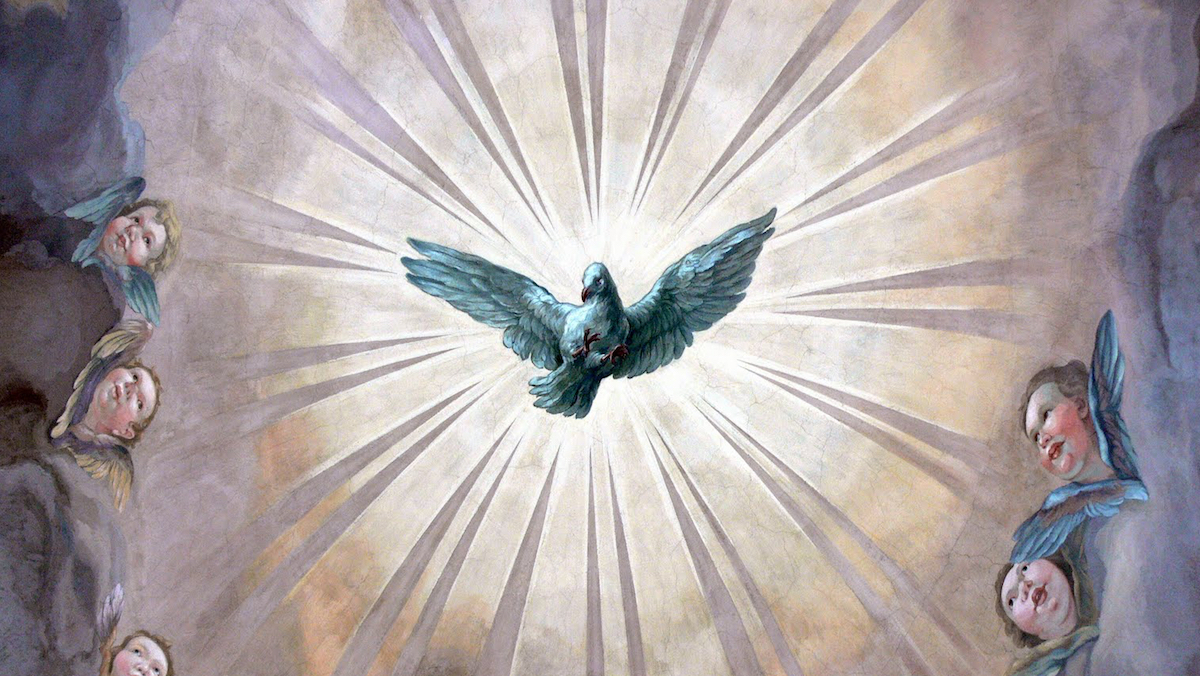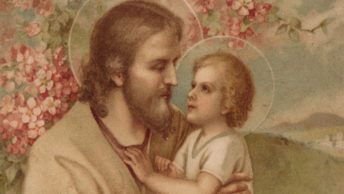In this second essay on the gifts of the Holy Spirit, we will talk about “Fortitude”. If you have ever suffered or are suffering, this gift is especially pertinent to you. Fortitude is the gift that connects us to God in the depths of the darkness of our suffering. When we find ourselves turning away or see our love ones turn away from God in times of trial, it is because the gift of fortitude has been left undeveloped. It has been forgotten along the way. There is no better time to work on fortitude than during suffering. But we also need to remember that in order to have sufficient fortitude to withstand suffering, we need to be practicing the skills of fortitude during our times of bounty.
So what can we do to fortify our souls with fortitude during the times of joy and the times of suffering? First we need to know the meaning of fortitude. Merriam Webster tells us that fortitude is “strength of mind that enables a person to encounter danger or bear pain or adversity with courage.” In his Summa Theologiae, Saint Thomas Aquinas defines fortitude: “[Fortitude] denotes a firmness of mind in doing good and in avoiding evil, particularly when it is difficult or dangerous to do so, and the confidence to overcome all obstacles, even deadly ones, by virtue of the assurance of everlasting life.” (I/II.61.3; II/II.123.2; II/II.139.1). The definitions are very similar. But St. Aquinas reminds us that the gift of fortitude is ultimately spiritual.
Fortitude is “firmness of mind.” This firmness does not just happen upon our baptisms and it is not like a light switch that you can just turn on. Our minds develop firmness over time and through endurance of trials and suffering. Like with all of these gifts, fortitude must be harnessed and practiced. If we break fortitude down into its theological virtues, we see faith and hope at its core. To endure suffering, we must rely on our faith. If our faith is weak or if we have not done our daily diligence in battle with the devil, our fortitude will not be able to withstand the darkness of suffering. When our faith is weak, our fortitude is like the seed planted on rocky soil. When suffering heats up, our fortitude gets scorched and withers. And, of course, when we are suffering we ought not to lose our hope. Not hope that the suffering will end- this is not the true hope of the virtue. This is hope of eternal life. Hope in God. Hope that God does have our best interests in mind.
If we are being real with ourselves, we can see that attending church on Sundays alone is insufficient to withstand the trials of this life. It is imperative that we develop a constant prayer life, that we do acts of love for our neighbor and that we are regularly partaking in the sacraments, especially of the Eucharist and Reconciliation. One thing that I hear all the time is people proclaiming shock that God would allow this trial to befall them. And then the person becomes angry at God and loses faith and hope.
This point is where we meet fortitude. We never know the moment suffering will befall us. Ask someone who has suddenly lost a loved one with no warning. It is shocking, lonely, painful and so many other deep heartbreaking emotions. We often feel unprepared for these kinds of trials. Why? Most often because we have not been taking our lives as Christians seriously. If we are only turning to God when life gets too hard, we have missed the point of this gift. We have not truly engaged with our faith and we have not be cultivating fortitude. This gift needs to be taken seriously. And it needs to be practiced with fervor each and every day. Because we never know the moment suffering will befall us.
Isaiah 40:30-31 sums it up: “Though young men faint and grow weary, and youths stagger and fall, [t]hey that hope in the Lord will renew their strength, they will soar on eagles’ wings; [t]hey will run and not grow weary, walk and not grow faith.” This is fortitude. To be able to endure trials without growing weary. Fortitude is being able to turn to God again and again and again in our suffering. It is knowing when we have stumbled and need reconciliation. It is saying, “Okay God, I don’t know why you have permitted this trial to befall me, but I will keep my eyes on the cross and follow where you lead.” This is the example that Jesus showed us in the Garden of Gethsemane and into his Passion. Fortitude says again and again “Thy will be done.”
Finally, an essay on fortitude cannot be concluded without one last example that is so familiar to many people. “The Three Men in the Fiery Furnace.” This is such a beautiful example of faith and hope culminating in fortitude. Nebuchadnezzar has ordered Shadrach, Meshach, and Abednego to violate God’s law. And they will not. He has sentenced them to death in the furnace. And what does Abednego say to the King? “But even if he [God] will not [save us], you should know, O King, that we will not serve your god or worship the golden statue which you set up.” These words are the motto for fortitude. Fortitude says, “God, even if you will not take this suffering away from me, I am yours and I will cling to you and will always do your will, no matter what.”
Whatever motto we find to anchor us to fortitude, we should write it in our hearts, on a stone tablet, or perhaps pepper our screens with postits. To practice fortitude is to practice overcoming our failures to have faith and hope again and again. It is losing our way and returning stronger and more committed. It is fighting the fight even when we lose battles. Through these efforts and partaking in God’s grace through the sacraments, we, with the Holy Spirit’s help are cultivating fortitude that can withstand the most horrid of sufferings this world has to offer. So let us practice this, every day. Not wasting a moment, for we do not know when the darkness of suffering will befall us. And before we forget, we develop none of these gifts on our own merits. It is only through the Holy Spirit that we are gifted with these opportunities.








